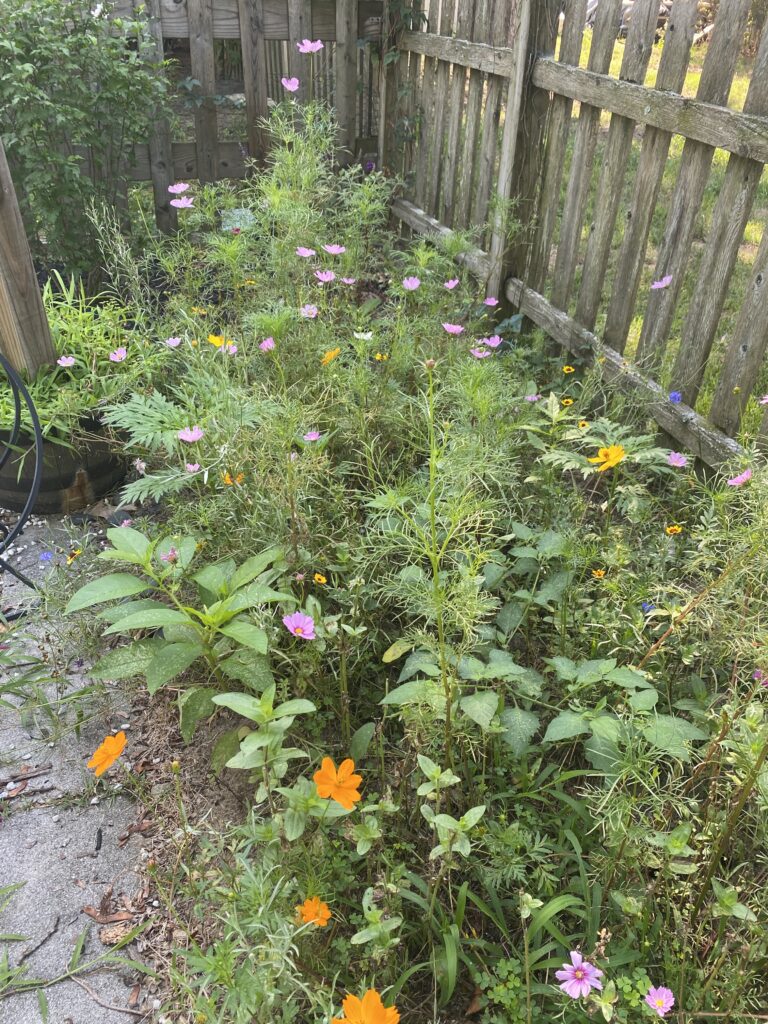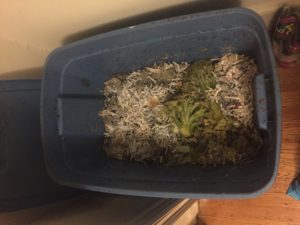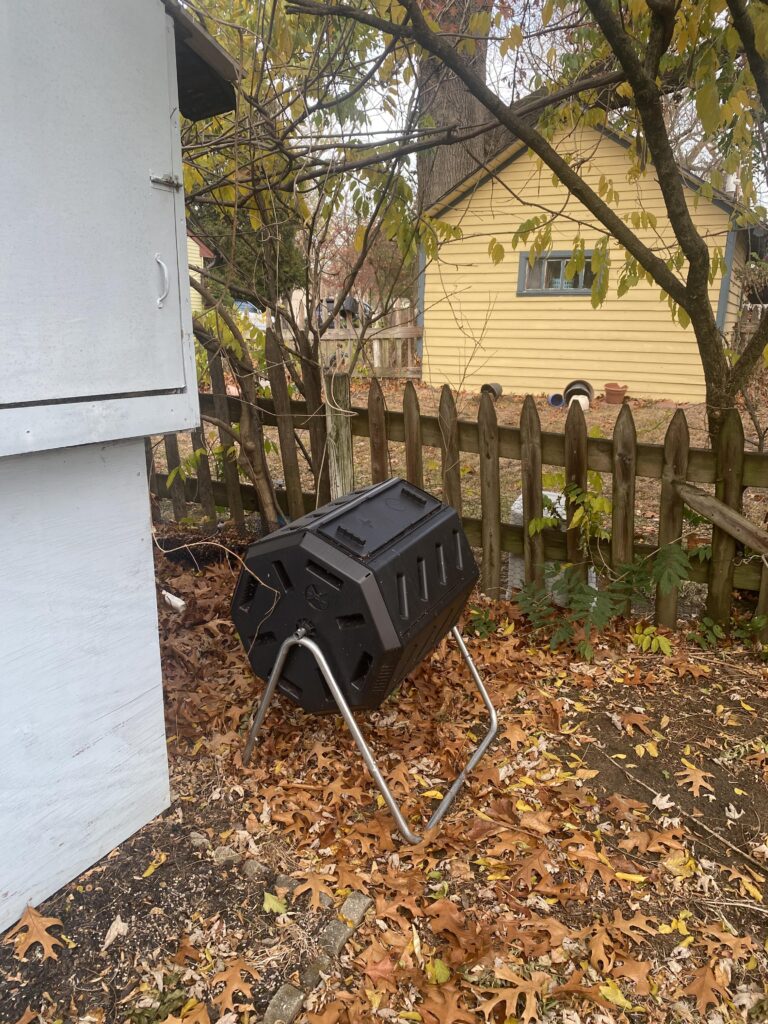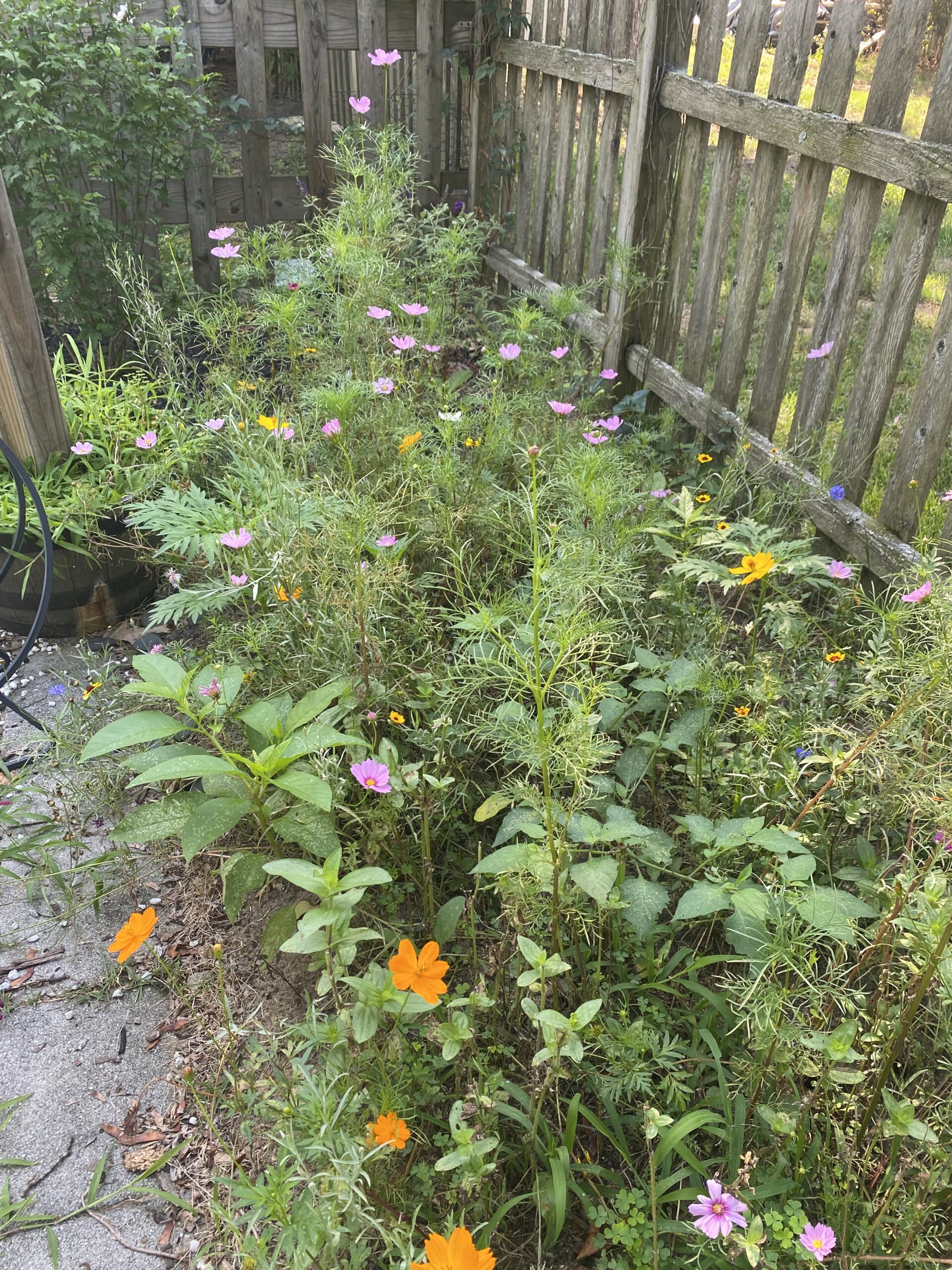I am composting. And you are too.
com·postˈkämˌpōst/verb • make (vegetable matter or manure) into compost.
Can one write about a topic without providing the definition/etymology of said topic? Perhaps. But I am not that one.
Moving on.
Ever wonder why anyone bothers with composting?
This is why:

I have begun that adventure descent from stand-up, model citizen to rogue, counter-cultural dissenter. This is the first step, le compost bin in le apartment.

I outsourced my composting to worms. This kind of composting is known as vermicomposting, as it uses vermis (worms) to turn organic waste into compost. The advantage of composting with worms, other than the fact they are charming little fellers, is that is does not smell of sewer.
Traditional compost piles have a tendency to smell worse as there is less aeration. The bacteria that hang out in anaerobic environments smell. It is possible to utilize a compost pile with little odor. However, for the unwashed masses dwelling in apartments — myself included — a worm bin makes much more sense.
To make your own, follow this tutorial.
Basic Steps:
- Get Supplies
- Storage Bins
- Bedding Materials [ old egg cartons, shredded paper, etc. ]
- Small amount of Sand [ for worms to grind material, they don’t have teeth ]
- Worms [ I used Uncle Jim’s Worm Farm ]
- Assemble
- Enjoy
More Composting!
I now exploit my privilege as a landowner to garden. We’re talkin’ flowers, fruits, and yes… vegetables. There are two things you learn as a gardening.
- There is so much to learn, that you will never learn it all in one lifetime.
- Compost is the best thing for plants.
I no longer use a bin for vermicomposting. However, at our two raised beds, I continue exploit the red wigglers with in-ground vermicomposting. Which just means that there are two holes to dump food waste into and the worms live in the raised beds. Those happy worms wiggle around the raised beds in a fit of delight — aerating and fertilizing the soiling.

To add to this, I began a two compartment tumbler compost bin. Said bin ’tis but a young babe and has yet to produce its first batch of compost. We add our kitchen scraps to it. And balance that out with fallen leaves that are chopped up. The bin gets plenty of turns each week. This compost will be instrumental in the coming spring.


Leave a Reply